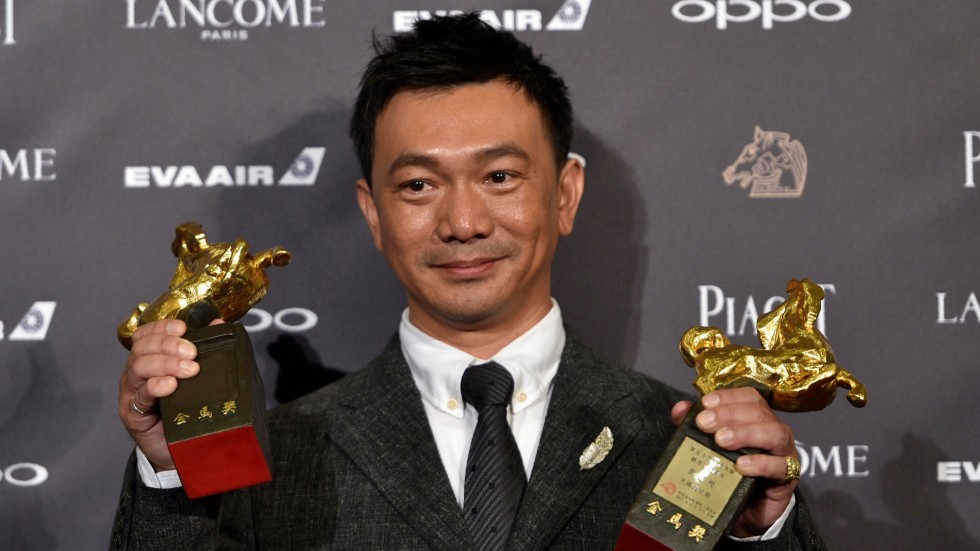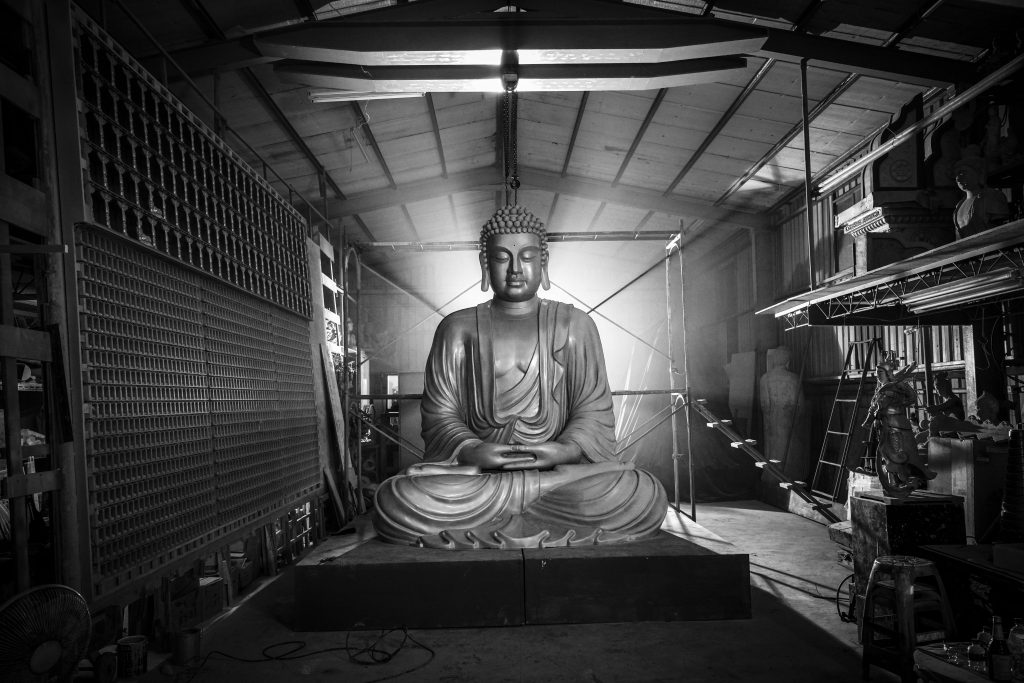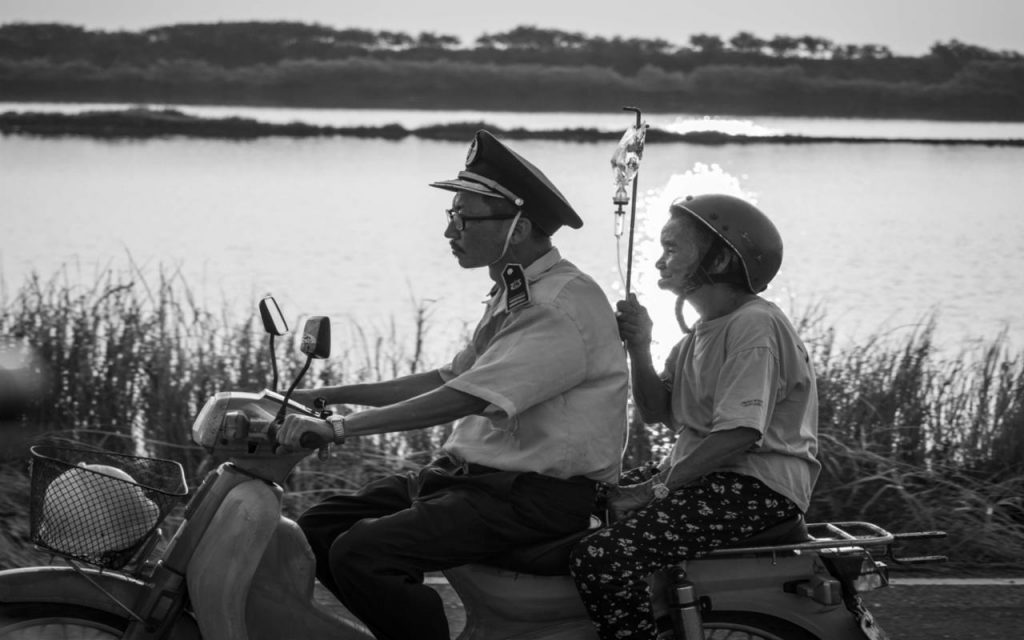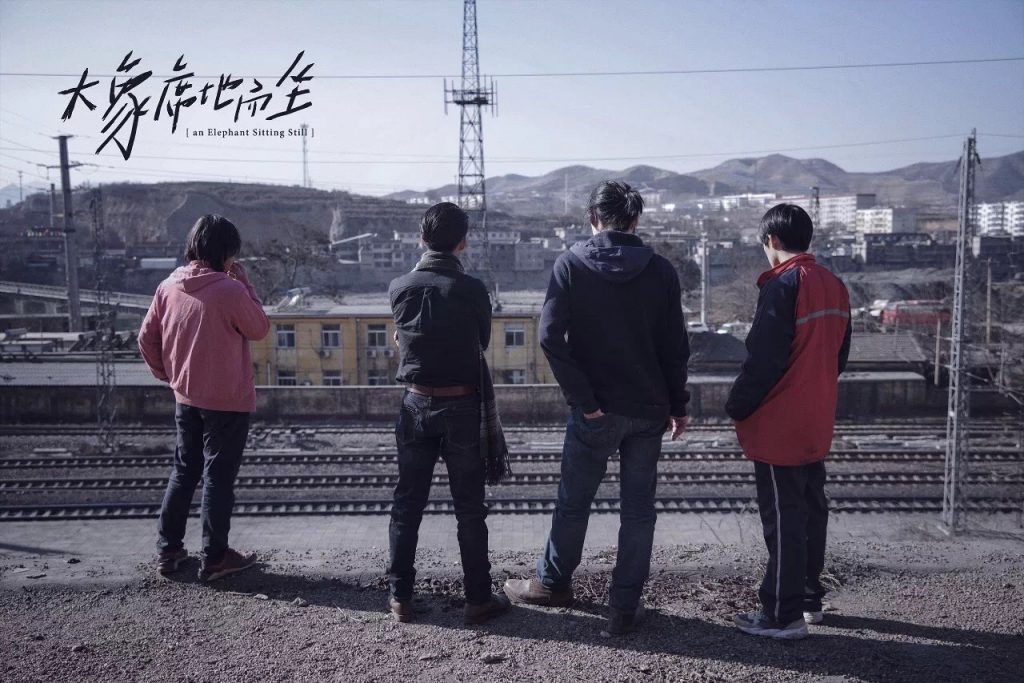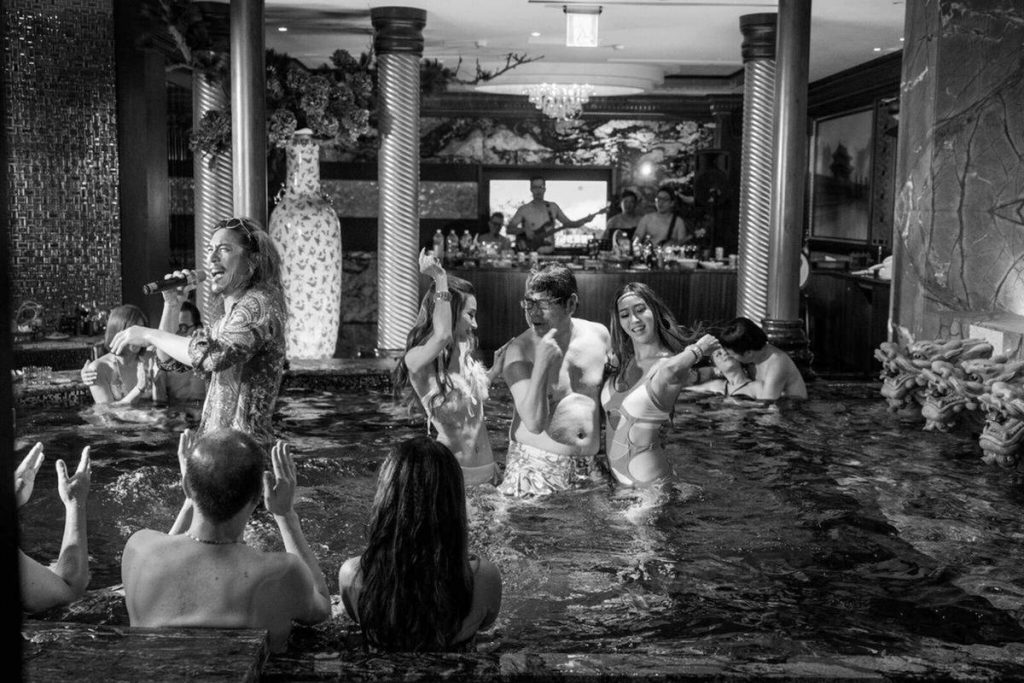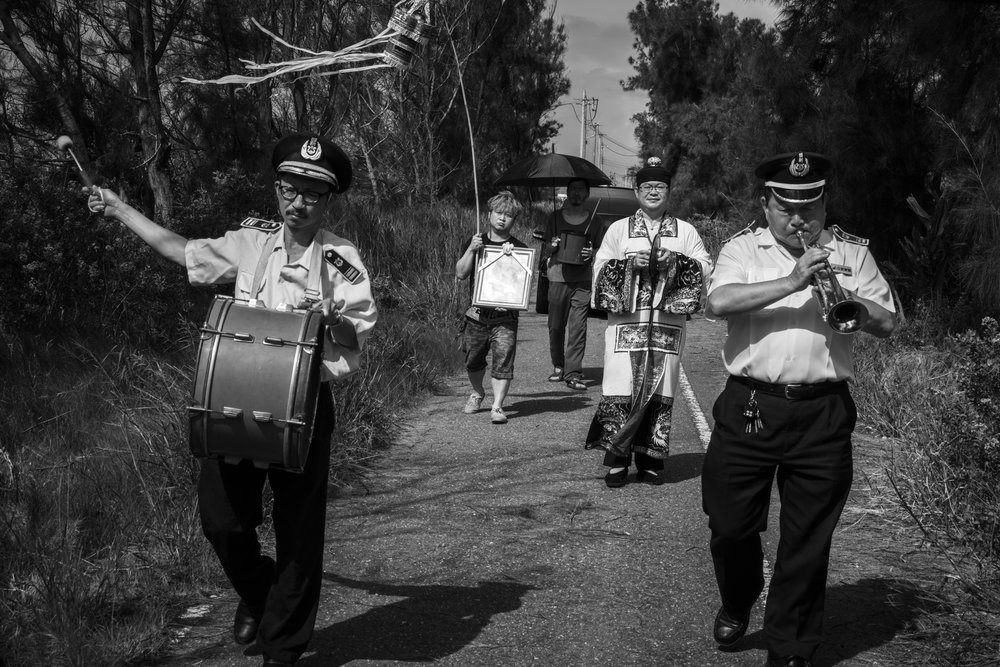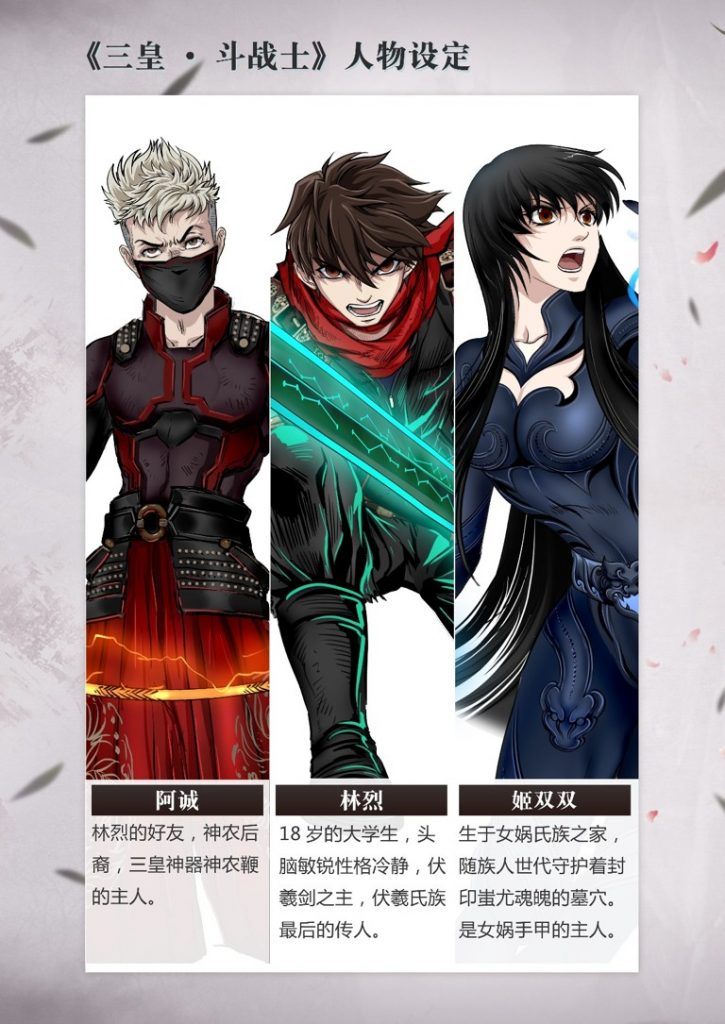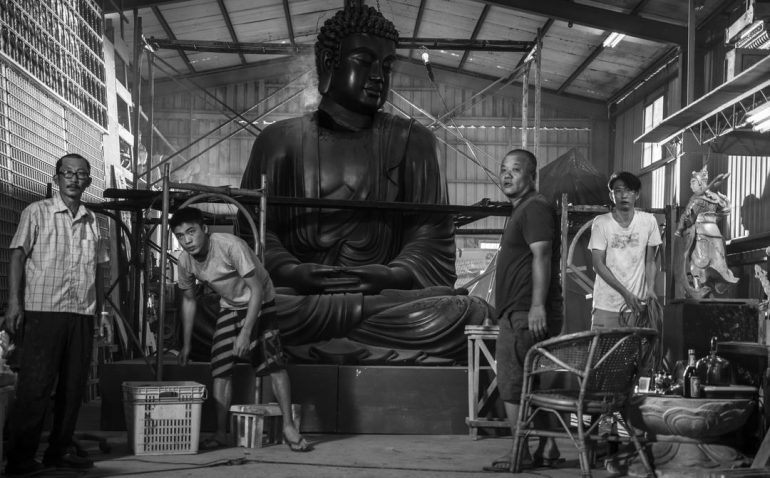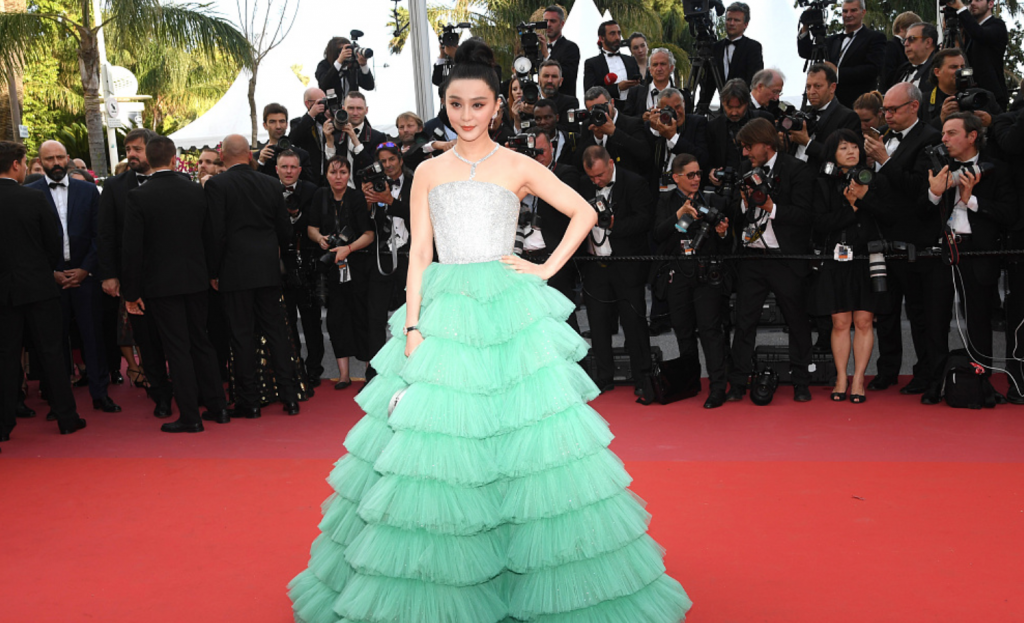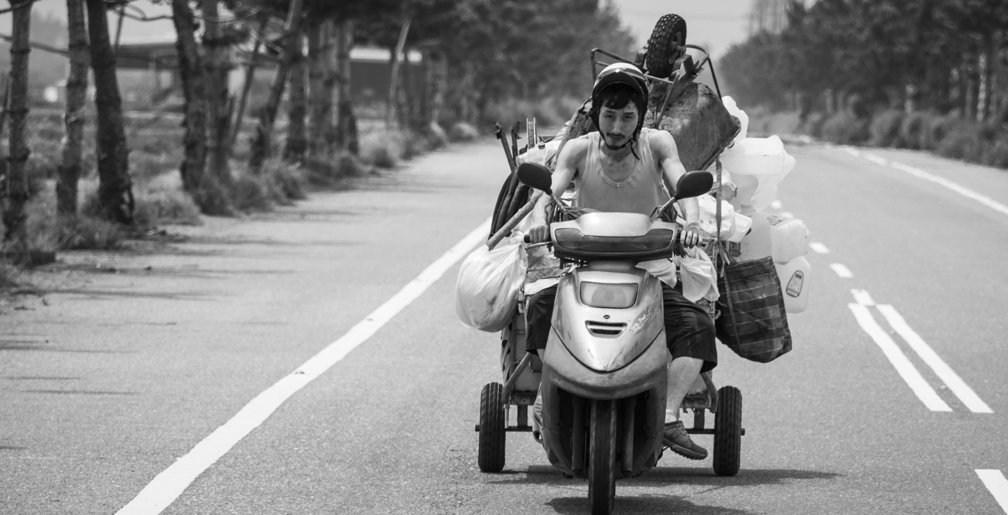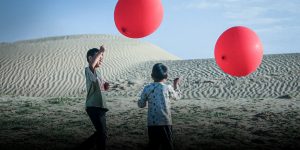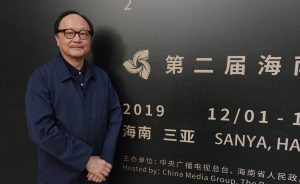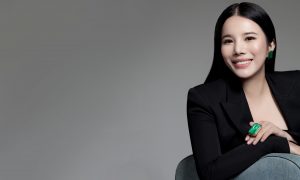Huang Hsing-yao was born in 1973 in Tainan, Taiwan. He was mostly a documentary director, until he shot “The Great Buddha+”, the feature version of a previous short of his. The film went on winning awards at the Golden Horse and the Taipei Film Festival and soon was screened all over the world.
On the occasion of the film’s release in the US and Canada by Cheng Cheng Films , we speak with him about the awards the film received, the challenges he faced in shooting it, the casting process, Italian Neorealism, the characters in the movie and his future projects.
How do you think the recognition and awards your film is gaining will shape your career and your future decisions?
It seems to me that after the attention and the awards this film received, it‘s easier for me to get funding for my next project. It’s like suddenly people think you are a big deal and your thoughts are interesting. I don‘t know, I guess this is how society works (laugh).
What was the biggest challenge in the realization of the movie?
Like I’ve said, the making of this film for me was a very difficult process (laugh), from beginning to end.
Since the first time I met with director Chung (Chung Mong-hong, director of “Godspeed“, who also worked as DoP in “The Great Buddha+”) and decided to make “The Great Buddha+”, I’ve felt that it was very difficult to make this narrative feature film. Though the story idea is mine, I’ve never written a screenplay for a narrative feature; so I thought about hiring someone to write the screenplay. But director Chung told me that my story can only be truly realized by my own writing. I don’t really know how to write a script, but Chung was very supportive. He told me that I should write in the way that I can understand; in that way, it is possible that other people can understand it as well. He told me that I don’t have to care about the format, because everyone has his own style.
I thought he had a point. It’s just like Hou has his own style and his scripts have their own unique look. So I thought I should finish the script on my own first. I think the screenwriting part might be the most difficult part in the filmmaking process for me.
The principle photography stage was a challenge for me as well, because I didn’t have too much experience in fiction filmmaking. I wasn’t sure that I was up for the task, since I had to work with these professional and experienced filmmakers, actors, and actresses.
Editing and scoring the film was full of challenges as well. Actually the promotion campaign for the film was hard for me as well. Since I wasn’t used to be interviewed by the press, it was demanding for me to have to talk about so many things in a short period of time.
I’m an introvert and not a very sociable person. But you have to do this for the film, which is the result of the collective efforts of my wonderful crew and cast. I felt like I have the responsibility to promote the film as much as I can.
As you can see, the whole process of making and promoting this film was all very difficult for me. It was a great learning experience for me.
Did the shift from documentaries to a feature film feel challenging? Furthermore, what were the adjustments you had to make due to this change in genre? And do you think you will carry on doing both or you will choose one path?
I think documentary is totally different from fiction film.
My documentary crew is really small. I usually shoot the film on my own. Sometimes, I will have another assistant. I really like this way of filmmaking. I can shoot things I like and be really unintrusive. Especially now, I don’t have too many interviews in my file. I focus more on the form of the images and sounds of the film. In a way, my documentary becomes more experimental.
Fiction filmmaking is really different. You have to collaborate and negotiate with many people. You rely on so many people’s help. And in a very short period of time, you have to finish the film. So, I think fiction film is very different from documentary. You can make a documentary film very slowly, because you get to immerse yourself into the environment and feel the tiny changes of it. You have to be very patient when you’re shooting a documentary; and you have to have a strong will when you’re making fiction film. Moreover, you need to collaborate with other people. That’s the biggest difference to me.
Although you couldn’t get too much funding for a documentary film, you can reshoot something if you didn’t get it the first time. You have more leeway to revise. And usually, you only start to think about how to tell the story when you are editing the film.
Fiction film is really different. It involves more money and is usually labor-intensive. It’s harder to reshoot something, because it all costs a lot of money. Of course, you can change things while you’re in the post-production, but you won’t be able to get new material.
For me, when making a fiction film you cannot “think while your are shooting”. In documentary, I can shoot for a couple months with one plan in mind; if suddenly I find something wrong about my original plan, I can change the aesthetic form that I want the film to feel like and start shooting again.
So I think, working on fiction film is more daunting for me. The margin of error is smaller. Documentary allows you to make mistakes, and they are great chances to help you think deeper.
I will keep working in both modes. I don’t think they will interfere with one another. In fact, sometimes I think when I am making a documentary film, it will give me new thoughts for the fiction film project.
I feel like my documentary films always have a strong experimental tendency in them. They are not like the traditional oral history, portraits, or social justice films. They are colder and closer to experiments in sounds and images.
I guess that’s why I won’t focus on only one genre of filmmaking. I will keep making documentary and narrative feature films. For me, documentary is closer to experimental film.
It seems that your movie has a very high density of directors within the cast; Mong Hong Chung, Cres Chuang, Leon Dai. What were the pros and cons of this unusual set up? I can’t stop thinking of the old proverb “too many cooks spoil the broth”! In general, how was the casting process like for the film?
Female characters are more difficult to cast. This is because the actresses don’t get too many chances to show off their acting chops. Moreover, the scenes they are in are mostly erotic in nature. We were afraid that many actresses would be uncomfortable with this type of performance.
When we were looking for the right person to play the character Mrs. Yeh, we thought that she should at least know a little bit Taiwanese (Hokkien). Then we thought of Kuo-Lin Ting, because she has been playing characters that are direct and blunt. So, we thought that she might be willing to take up this part. Ting was such a pro, and I think she nailed the part. Her delivery was impeccable.
As for J.C. Lei’s character, the escort Gucci, was also a difficult part to cast. Pop idols wouldn’t want this part; and we really need to find an actress that can totally transform herself into that kind of personality. Because if she can’t hit all those notes, her male counterpart won’t be able to give a believable performance.
After I talked to Lei, I realised that she was kind of like a method actor. It’s like she would enter in a state of trance when she was acting.
Actually, Lei was the first actress we contacted for this role. She told us that she liked the script and understood the character of Gucci, which, for her, was the key character for the whole film. There are many people who criticize our film for objectifying women. But Lei knew why I wrote the character in that way, I think she really got the essence of the story.
That’s why I think it’s better to find an actress who understands your script, than one who is just famous. Because if she understands the script, she can totally immerse into the character.
This is how the casting process was like. I really believe that talent is way more important than fame.
As you can see, there are many side characters in the film who probably only appear in one scene. Some had more to play, like Chen who played the congressman and did a fantastic job.
I’ve also used a lot of veteran actors in the film, people like Tou Hsien (“脫線” which is a stage name, literally means ditzy). They hadn’t been working for a while, but I thought they would be great for the parts. And I think I made the right decision.
Generally speaking, for finding the right actors I rely on discussing with other crew members and my intuition to do the job.
The initial funeral scene (and others too) reminded me a lot of the Italian Neorealism movies of the 50s/60s. Was I having a homesick hallucination (I am an Italian expat) or there is actually some inspiration from them?
Basically, I won’t say that the film is influenced by Italian Neorealism. I was more influenced by the landscape of my hometown. For instance, the opening funeral scene is shot near my place. I hang around that place a lot. If you can’t tell, I really like barren landscapes. So when I was there, I was thinking what if there is a funeral and people were scattering around, what will that look like?
In an Italian Neorealist film, or an Angelopoulos film, you often find a parade. However, they are usually more colorful and visually striking. But for me, the point is to show the barrenness of the place. I want to show that it is a place that truly has nothing, because in reality, you cannot even find a tree there.
And usually in a funeral march, you will see a luxury Benz. However, it is usually there for show. Just like the musicians in the funeral marching band aren’t any good. But they are there to make the scene look good. It’s like you live in a land of nothing, but at the same time you want to pretend that you’re living the high life. This is the sense I want to get at. So the film is about a lousy life, which at first seems extravagant; but in reality it is not like that at all. Just like the drummer at the beginning of the film who cannot even hit his marks. This is how I imagine the opening of the film.
I’ve always had a soft spot for a marching band. It doesn’t have to be a funeral marching band, but can be a regular marching band, or one for religious pilgrimage.
I’ve always wanted to put a marching band on the beach, on the embankment or in the forest. And luckily I got a chance to do so at the beginning of “The Great Buddha+”.
I’m not sure I can say that I am influenced by Italian Neorealism for this aspect. But on the other hand, you can never be sure about one thing’s influences on you. Maybe there was a connection originally. However, after your own thinking and reflection of the things you’ve consumed, it’s hard to say for sure about the exact influences.
I’m not an impressionable person. Usually, after I’ve watched and was moved by something I will put it in my heart. And it will be mixed and remixed with other things on my mind. There will be something new grown out of this process at the end of the day. So, I’m not sure if I am influenced by Italian Neorealism. However, I do like the parade scenes you can find in so many of them.
Your voice-over commentary adds lots of character to the movie. Is it something you brought over from the documentary experience? And why did you decide to apply it to The Great Buddha?
Sometimes I will use the documentary-style voice over in my films. That being said, I have several documentaries that don’t have any voice over in them. Not only that, I don’t even put music and interviews in them.
This is because I’ve always been thinking that is there another aesthetic form for documentary. That’s why I often use less and less voice over in my films. Even the short film version of “The Great Buddha” doesn’t have voice over.
It’s only after Chung watched my other works and told me that my style of voiceover really conveyed my personality. Since “The Great Buddha+” would be my first narrative feature film, he thought I should add voiceover into the film.
Since it was my first film, I got no baggage and could do whatever I want to. That’s why I decided to use voice over in “The Great Buddha+”.
I tried to write down the voice over part when I was working on the script, but it wasn’t the final form as you’ve experienced in the film. This is similar to the way I make documentaries. When I am editing a documentary film, I will often deal with the voice over part at the end of my editing process. It’s only after I have a basic shape of the film, then I will start recording the voice over. After that is done, I will fine tune the film.
“The Great Buddha+” is done in a similar fashion. In the original script, I didn’t add too many voice overs and the tone was more reserved. I added more and more voice overs throughout the editing process, and they became much more straightforward. For instance, at the beginning of the film, I introduce myself to the audience and address the audience that this film is co-produced by Mandarin Vision and Cream Film. I felt like, since the film is not restrained by any specific form, I can be more creative in my uses of the voice over.
Can you tell us a bit about the location the film was shot? In general, how was the shooting of the film like? Any memorable episodes, good or bad?
We shot the film all over Taiwan. The main scenes were shot in Kaohsiung and Taichung. The Buddha factory was in Kaohsiung. Actually, we use the same Buddha statue in both “The Great Buddha” and “The Great Buddha+”. When were filming “The Great Buddha+”, the factory you see in the film is the place where the statue was made. I find it amusing that we shoot the film at the Buddha’s own home.
We also shot some scenes in Tainan. Many of them were close to my hometown. For instance, the scene where Pickle takes his mom to get IV infusion was shot in the public clinic, where I went to sometimes for cold. I find it interesting that this event can be changed into a scene in my film.
The scene where the deputy speaker is having a party in a pool was shot in a motel in Taichung. A producer found the location. I was surprised that there was an extravagant motel located at the luxury area at the center of the city. For me, it is a very surreal place. Though it is surreal in a different way than the rural area where we see the funeral marching band in the film.
I think all the scenes in the film are very realistic. However through Nakashima’s cinematography and the actors’ performances, these mundane places become extraordinary. I think my scenes really embody magical realism, which is a style I really love.
I like things that are seemingly real, but at the same time you feel that there is something surreal about them. They are familiar and unfamiliar to you at the same time.
One thing I would like to add. The house by the sea where Skaya/Sugar Apple (Shao-Huai Chang) lives is a place I’ve seen before. And I’ve met people who live in a place like that. When the crew found out the place in Taichung and remodeled it, I felt like they created something that is better than my imagination. I am very happy and surprised about that.
I think all the characters of the movie, even the secondary ones, are vividly described with well-placed touches. Where did you take inspiration for their portraits?
Since I had no experience in writing a screenplay for a narrative feature film, I had consulted with others. They often told me that the most important thing is that you have fully fleshed out characters. After I had the character Pickle, I felt like he must have friends. So, I started creating other characters.
Although they are side characters, they must have their own stories. For instance, there must be a reason why Pickle’s uncle is like that. To create that character, I had to understand his life experiences. So, in the script I put in his past as well.
I believe that only by giving them life experiences, these characters can be fully fleshed out. This also helps me to communicate with the actors about what kind of person they are playing. Otherwise, they will only have partial understanding of the characters.
To take Gucci as an instance, I will tell Lei that Gucci might only be interested in the money her patrons have, but later she might have real feelings for them, which are more than material interests. So I told her that you have to imagine how you will treat your patron after the entanglement of money and love.
So I think if I can have a clear picture of the character, I can then empathize with the character. This gives me a way to communicate my thoughts with the actors.
My documentary experience might have influenced me to portray the whole life process of the character.
I drew my inspiration for my characters from various sources. The character Pickle is actually inspired by a Japanese manga “Wanitokagegisu” (わにとかげぎす). The manga is about a night guard in a mall. I feel like that is an extremely lonely job. I‘ve been always interested in adapting that manga into a film, but after I’ve realized how much will the royalties would be, I gave up the idea. However, I still thought that a night guard is a very interesting character. So I started to observe factory guards, or guards for residential buildings. The latter is an especially strange job. They are not residents, but they have a close relationship with the people who live there; and at the same time there is still a distance between them.
Then I started to imagine how Pickle’s friends are like. Someone who will visit Pickle at midnight would probably be one who collects recyclables. This is how Belly Button came about. He will collect his recyclables and hang out with Pickle at the factory.
As for characters like Kevin. There are a lot of phony people like that in Taiwan. Some of them are intellectuals, or they came from privileged backgrounds, but they are hypocrites. Sometimes I would wonder what makes them act like this? I think they are not innately bad. Instead it is the environment that makes them this way. So Kevin might want to be an artist and create his works. However, the society influences him in a negative way, which turns him into an awful person.
I will say that good and evil are not clear cut in my film. Skaya is actually a combination of two people I know. I met one of them when I was making a documentary. We were at the seashore, and we met a old man who lives in a fortress near the sea. We had a conversation, and he told me that his home is nearby but since he used to work on cargo ships, he wasn’t used to live in a concrete house. He thought that the fortress was closer to the sea, and you can see the stars at night. For him, it felt like he was still on the ship. He told me that he slept better this way.
Another model was from my hometown. It was a mute person, who was always riding a bike. When the village still had farming going on, he would help people with farm works. But after people stopped farming, he started to collect recyclables. Since he only got one bike, he couldn’t pick up too many things at once. So you would constantly see him riding around the village. He was always alone, and had no one to talk to. So I created Skaya out of these two characters. I felt like they are the modern hermits. They might be engaging with public life in a different way, they might be ordinary people, or they might be transcendentalists. For me Skaya is the purest form of human beings. He is what humans look like in their original form.
You can actually see a lot of young people like the character Peanut in southern Taiwan. They know that they cannot compete in a big city, so they stay in their hometowns. They might tell themselves that they shouldn’t be too ambitious. Life would be fine if they could just have a stable income. You can either say that they only want to live a peaceful life, or they don’t dare to dream about their future. In the script, Peanut has a crush on a girl, who fell in love with someone else. After this, Peanut couldn’t have another romantic partner. I want to use this character to portray a generation who doesn’t dare to dream about their future.
Pickle’s uncle also has multiple functions. The relationship between him and Pickle reflects the dark side of Confucianism. I really dislike the Confucian idea that we should “honor the aged” unconditionally. Pickle‘s uncle is a character that doesn’t deserve the respect from Pickle. Pickle‘s uncle is also a mirror for Pickle and Belly Button. They might be like him when they grow older.
At any rate, I create these characters based on my life experiences and observations of my daily life.
Can you give us some details about your future projects?
Currently, I’m making a documentary. This project is about an irrigation system, the Bailang Zhen (Bailang waterway 白冷圳) built by the Japanese in Taichung (a major city in central Taiwan) during the colonial period. The irrigation diverts water from the mountains to a plateau. I want to film the journey of the water running through the waterway, because I think it is such a fascinating thing. I have traced the irrigation water from its sources in the mountains, then follow it to the Dajia River, then to this irrigation system, to the plateau, to the fields, and finally to the water treatment plant. I wish to capture the Bailang waterway as a whole.
Moreover, the film is about sound, or the expressions of sounds. As you know, water makes different sounds when it passes through different places. So, basically, human voices will not play a role in the film; and I don’t plan to interview anyone. The film will consist of the sounds of water, the expressions of water.
I have another project called “Taiwan Impressions”. This is a project that I’m working with the Public Television System (PTS). Following the same logic of the Bailang film, I want to explore the relationships between sounds and images in “Taiwan Impressions”. To put it simply, we can easily see the differences between an image of the Longshan Temple at daytime and nighttime. But how can we convey the differences through sounds? This is what I want to explore further. The sounds of the roads in northern Taiwan are different from the south. The sounds of the seashores are different from the mountains. It’s easier to see the differences through images. But I want to use sounds to compose an impression of Taiwan.
I have another documentary in the editing process, which is about my hometown Tainan. I’m also planning to finish another script by the end of this year. So I can start to shoot another fiction by August 2019.
The Great Buddha+ is released in the US and Canada by Cheng Cheng Films.
–This article originally appeared on Asian Movie Pulse.


